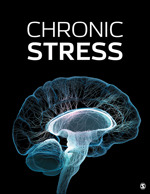 “The role of the endocannabinoid system in stress-related psychiatric symptoms has been investigated in many animal and human studies.
“The role of the endocannabinoid system in stress-related psychiatric symptoms has been investigated in many animal and human studies.
Although most of these studies consistently report long-lasting effects of prolonged stress and trauma on the endocannabinoid system, the nature and direction of these changes are controversial.
We reviewed the available preclinical and clinical studies investigating the endocannabinoid system alterations long after chronic stress and trauma.
We propose that the effects of prolonged stress or trauma on the endocannabinoid system are different based on the developmental age of subjects at the time of experiencing the trauma and its repetitiveness and accumulative effects.
The current literature consistently demonstrates decreased levels of endocannabinoid ligands and receptors if the trauma occurs in childhood, whereas decreased levels of endocannabinoid ligands and increased levels of cannabinoid receptors are reported when trauma has happened in adulthood.
It is important to note that these changes are region-specific in the brain and also there are important sex differences, which are beyond the scope of this review.”
https://www.ncbi.nlm.nih.gov/pubmed/31660473
“More studies are needed to compare the effects of childhood and adulthood trauma, with or without PTSD presentations, on the eCB system. These studies would have important clinical implications, not only for individuals with trauma and PTSD who commonly have comorbid recreational cannabis use, and medical marijuana users with PTSD being one of its main indicators but also for studies investigating the potential therapeutic use of cannabinoids and eCB enhancers in PTSD treatment.”


 “Medical
“Medical  “A cross-sectional multi-center study using an on-line survey addressing utilization, knowledge, and perceptions of medicinal
“A cross-sectional multi-center study using an on-line survey addressing utilization, knowledge, and perceptions of medicinal  “Many Americans rely on opioids at varying dosages to help ameliorate their suffering. However, empirical evidence is mounting that opioids are ineffective at controlling non-cancer related chronic pain, and many argue the strategies meant to relieve patient suffering are contributing to the growing opioid epidemic.
“Many Americans rely on opioids at varying dosages to help ameliorate their suffering. However, empirical evidence is mounting that opioids are ineffective at controlling non-cancer related chronic pain, and many argue the strategies meant to relieve patient suffering are contributing to the growing opioid epidemic. “Use of medical cannabis for improving symptoms of inflammatory bowel disease is increasing. However, reports on long-term outcomes are lacking. This prospective, observational study assessed the effects of licensed cannabis use among patients with inflammatory bowel disease.
“Use of medical cannabis for improving symptoms of inflammatory bowel disease is increasing. However, reports on long-term outcomes are lacking. This prospective, observational study assessed the effects of licensed cannabis use among patients with inflammatory bowel disease. “This study found that
“This study found that 
 “Globally, chronic pain is a major therapeutic challenge and affects more than 15% of the population. As patients with painful terminal diseases may face unbearable pain, there is a need for more potent analgesics.
“Globally, chronic pain is a major therapeutic challenge and affects more than 15% of the population. As patients with painful terminal diseases may face unbearable pain, there is a need for more potent analgesics.